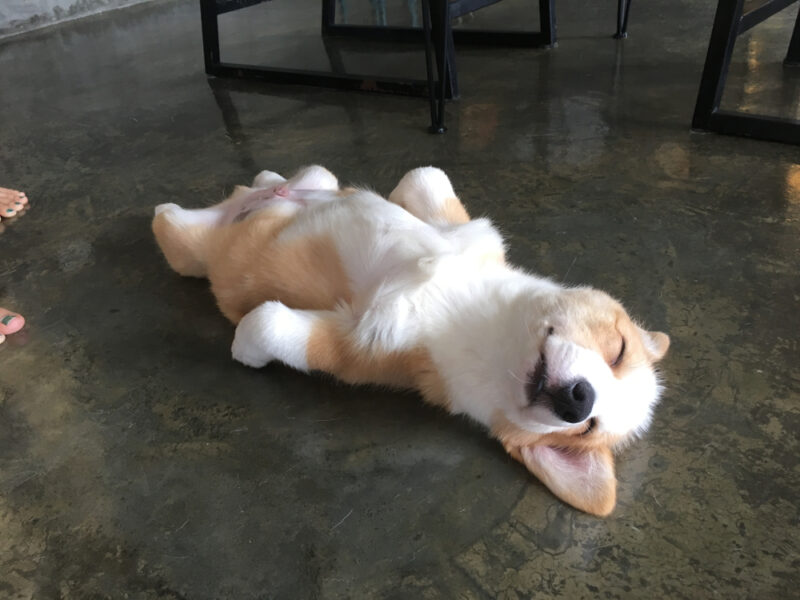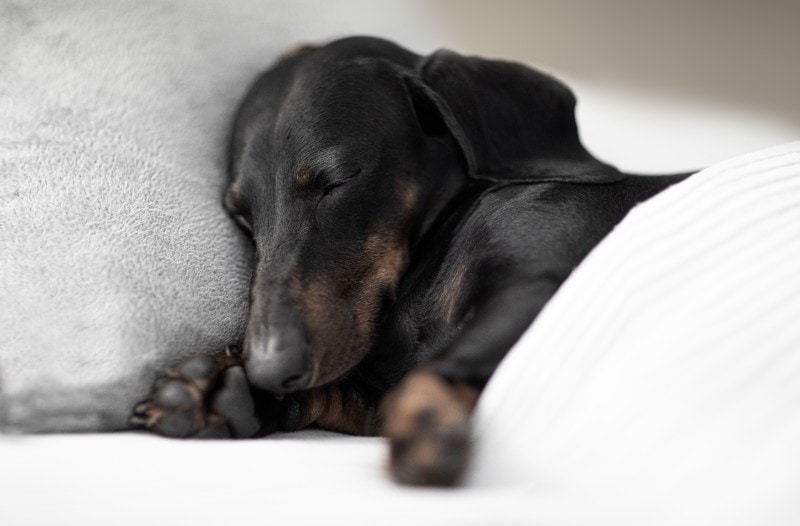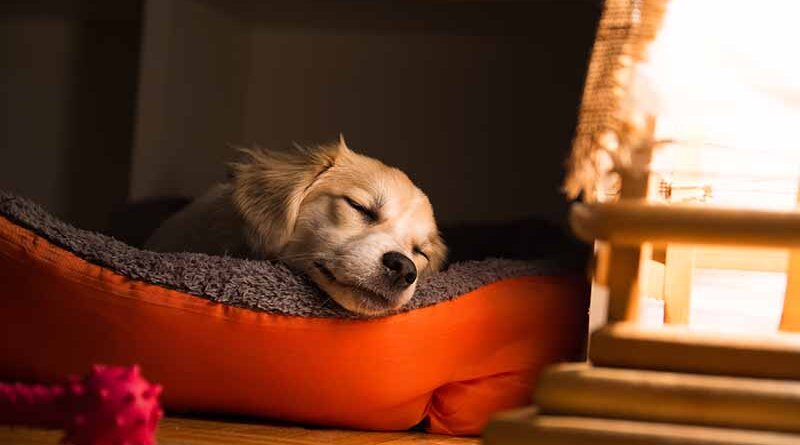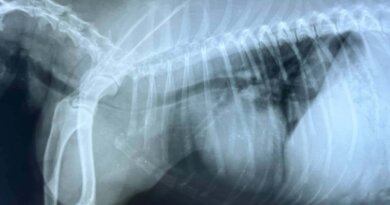Why Is My Puppy Sleeping So Much? 5 Vet-Reviewed Reasons – Dogster
[ad_1]
Puppies are great fun to bring home for the first time. They’re playful, loving, needy, and they happen to like sleeping. Sleep is a requirement for animals just as much as it is for humans. But the big questions are: How much sleep does a puppy need and why do they sleep so much? Let’s answer these!
How Much Sleep Should Puppies Get Each Day?
Believe it or not, the average healthy puppy will sleep between 18 and 20 hours a day! Considering how quickly they grow, it makes sense that so much is needed. That said, many factors play a role when it comes to exactly how much sleep a specific pup needs to encourage and maintain good health. Age, size and energy level will all play a role.
That said, if your puppy sleeps only 15 hours or more than 21, there is likely no reason for concern, provided they seem otherwise well. The 18- to 20-hour estimate is just that and not a rule set in stone.
As puppies grow, their sleeping needs will also change. Most adult dogs will average about 12 to 14 hours a day, while seniors tend to dip back toward the 18- to 20-hour range.
The 5 Reasons That Your Puppy Is Sleeping So Much
1. It’s for Growth and Development

Puppies spend day and night physically growing. All their bones, tendons, and soft tissues are constantly expanding and growing stronger. The central nervous system works hard to keep the entire body regulated and ensure good health. The blood cells, the brain, the skin, and even the toenails all require large amounts of energy to grow.
Sleep aids a puppy’s body in growth and development because it enables the system to shut down, repair and process. No energy is being expended for walking, eating, or even holding up their head. The more a puppy sleeps, the more energy their little body can spend on building up the bones, brain, and other aspects to ensure a strong and healthy life as an adult.
2. It’s Tied to the Number of Meals
We’ve all had that after lunch slump when you feel more like sleeping than working. That’s because after eating the body releases certain chemicals, like hormones, that can make you sleepy. It’s sort of the body’s way of shunting energy to digestion rather than other activities.
Puppies have small tummies which require more frequent feedings than adult dogs. This just means they have even more meals in which they feel tired after, potentially increasing the amount of sleep they get during the day.
3. It’s Hot or Rainy Outside

When it gets hot, a dog wants to lie down and rest, no matter their age. This helps them stay calm and cool. If a puppy is playing around in warm weather and suddenly decides to take a nap, they are likely resting as a way to relieve themselves from the heat.
When it’s rainy outside and everything seems dreary and quiet, a puppy is likely to comfort themselves by curling up for a long nap in a comfy bed or lap. This extra napping can make it seem as if they’re sleeping “too much.” However, this extra sleep isn’t likely anything more than just indulgent rest.
4. It’s Been an Eventful Day
Being a puppy is hard work—everything is tough to do! It takes extra work to try to get on the couch, and it requires a great deal of strength to refrain from jumping all over the kids when they come home from school.
When a puppy spends even just an hour excited, vigorous, and playful, especially when it’s a more rambunctious experience than usual, chances are that the pup is going to spend plenty of hours sleeping all the joy and excitement off afterward. A busy and eventful morning, noon, or night is sure to result in a nice, long slumber later.
5. Illness

The above list are all normal reasons that a puppy may sleep so much. Now, let’s take a look at a couple of reasons that will require some attention.
Along with their body, a puppy’s immune system is still developing. When you couple that with a puppy’s need to investigate every new dog and pile of dog poop, puppies have the potential to get sick-a lot. Whether it be a bacterial, viral or congenital illness, it may cause a puppy to sleep more. Sleeping helps the body focus on fighting the disease rather than barking at the mailperson. Other signs of illness that you may see are vomiting, diarrhea, fever, not eating, and not growing. If you think your puppy is sick, be sure to contact your veterinarian. Also, keeping your puppy up to date on at least the core vaccines can help ward off illnesses that may make them more sleepy.
A little side note here for small breed dog parents: these little pups are especially susceptible to hypoglycemia, or low blood sugar. Stress or long periods of not eating can deplete their small stores of glucose, potentially leading to lethargy and sleeping a lot, weakness, twitching and convulsions. Hypoglycemia can quickly become serious, so be sure to contact your vet immediately if you notice your puppy showing any of these signs.
How to Make Sure Your Puppy Gets Enough Sleep
Puppies are curious, playful, and interactive, just like human babies and toddlers. They also happen to be known for fighting sleep like toddlers do. Although they should be sleeping for between 18 and 20 hours a day, they are likely to try to break the rules with a few minutes of extra playtime or interaction throughout the day.
If a great deal of activity is going on in their vicinity and it’s enticing to them, chances are that they will try to skip the nap that they would take and join in on the festivities instead. If a puppy doesn’t get enough sleep throughout the day and night, they are likely to develop signs like humans would when lacking sleep.
These include:
- Lethargy
- Lack of focus
- Irritability/grumpiness
Of course, puppies show these signs differently than humans would, aside from the lethargy. They might lack interest in a game or toy that they usually like, be careless where they relieve themselves, become impatient and/or aggressive with other pets in the household, or act “grumpy” toward their human companions.
Encourage your puppy to nap by setting up a comfy bed in a quiet place in your house. Try to keep it out of the main stream of activities so that your puppy won’t be enticed to play instead of sleep. Stick to a schedule of interaction and playtime mixed with some downtime so that they know a little sleep now means more play later and be less likely to fight their nap.
Conclusion
Puppies require a large amount of sleep to keep up with their growth and developmental needs. They may also sleep a little more depending on the weather or if they are sick. If your puppy seems happy, spunky, and healthy when they are awake, chances are that they’re doing fine. However, if you have any concerns or questions at all, don’t hesitate to schedule a consultation appointment with your veterinarian.
Featured Image Credit: Daniel Besic, Shutterstock
[ad_2]
Source link






